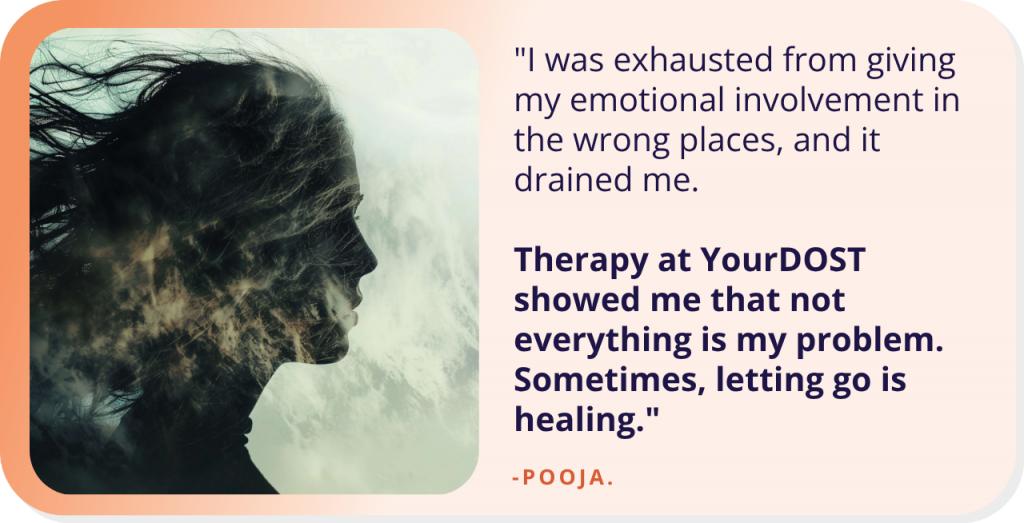Moms Need Help Too
As kids, we often think that no matter how big a problem may be, our parents will always take care of it. When we are young, we have an almost godly image of our parents, which means there is nothing they can’t protect us from, nothing they can’t bring in for us, and nothing that is impossible for them. As we grow, we still carry these feelings, sometimes even into adulthood. What we don’t realize is, our parents are ‘regular people’ too!
Our parents both go through a great deal of trouble to navigate the task that is “parenting”. Right from conception, they’re flooded with a deluge of information from gynaecologists, paediatricians and the family, as to what is good and not good for the kid. In your infancy, parents bring in what they have experienced in their childhood and what their support system advises, which often times are extremely divergent in nature. But there is one thing which all of them fail to address, that the mom and dad are “regular people” too, dealing with their own troubles in their lives, and carrying huge expectations of being the “best parent”, an almost impossible task!
Mothers go through a great deal of dynamic changes throughout their parenting lives. So let’s talk about mothers today, but for a change, as another human being.
Mothers Are Human Too
It is very difficult to fulfill the expectations of what that moniker “Mom” brings with itself. A mother, by instinct, wants to rear a successful, healthy child. There is also a huge amount of societal pressure to do this, and each mother has her own definition of success. The changes in a woman’s body throughout her life are quite the challenge to deal with; from the woes of puberty to the hormonal high of pregnancy; then the extreme hormonal dip post delivery, to the cyclical changes till menopause and beyond. It is difficult and admirable as to what a mother, and every woman goes through. To add to this, the obligation to deal with a tantrum throwing teenage child! A mother’s life is not easy.
As children, we look at our mothers as the person on that pedestal who can deal with anything that comes our way. But for just one moment, if we bring her down from that pedestal and see her in the light of the person she really is, we will realise that she is just another woman who is dealing with all the emotional and physical issues that almost every single person is facing. She also has her peer rivals to deal with at work, the angry boss who refuses to recognise her contributions, the unending daily chores that are taking a toll on her health, the ups and downs of her relationships, and what not, you name it!
Mothers Need Help Too
It is important that we see her in this light at least once. Because then, we will be able to hear the silent cry for help that she is not making. When a woman transitions to motherhood, her thoughts reel towards how to be a good parent, and often she, and everyone else will address only the aspect of parenting, and not her personal needs. This can leave a gaping void within her, leading to unfulfilled desires which can extended to her interaction with her child too.
Although repeated problem behavior like crying for seemingly trivial issues, and overattachment to unhealthy levels, may seem like only parenting style issues, but they can often be indicators of what she is going through under the surface. For example, as a working woman, if she is feeling unappreciated at work, she may want to compensate for that at home. This over-expectation, when unmatched, can cause irrational outbursts. Left unaddressed, this can become a regular pattern, even second-nature. A mother’s parenting style is intimately interlinked with her individuality.
Talk About It
Talking about this with your mother is important, for her and yourself. Just letting her know that you are there for her can go a long way. It is also important to identify problem behaviors. Due to our relationship with our parents, realising they are going through emotional turmoil, which may require a professional assistance, doesn’t strike us naturally. Hence it is imperative to pick on signs of emotional dysregulation like constant feelings of sadness, extreme mood swings, sudden change in personality etc. She may not open up to you, may even try to conceal her feelings, given the societal expectation from her to be the care-giver and an authority figure. But letting her know that it’s ok to feel what she is feeling and that it doesn’t make her a bad mother, can help her gain the necessary foothold to combat her problems.
At the end of the day, a mother is a woman first, and she too may need help!
No doubt all mothers love their children unconditionally. The bigger question is how much attention do they give to their own wellness. It’s time they did. Talk to a YourDOST Expert for personalized guidance.









